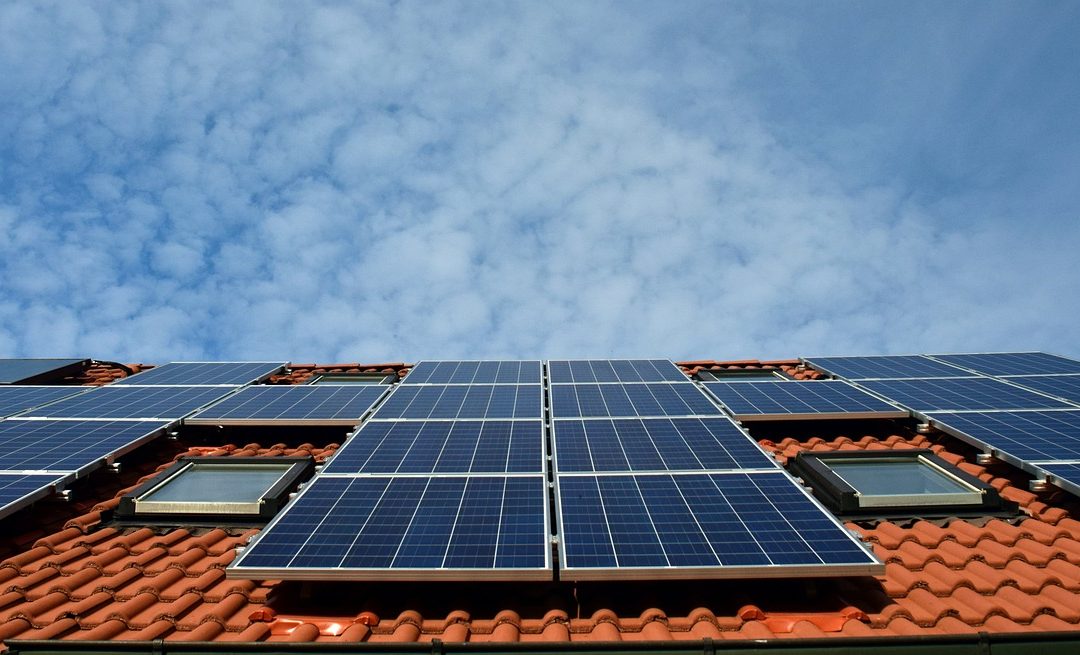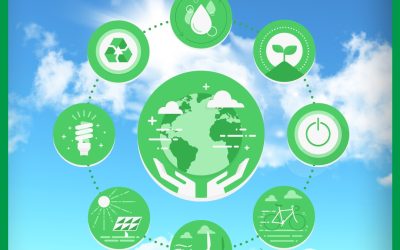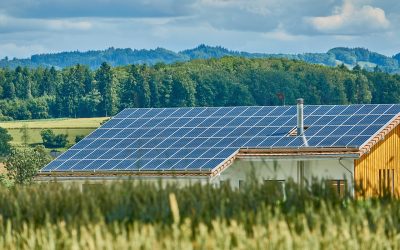So you’ve decided to go green and have invested in solar panels for your home or business. Congratulations! By harnessing the power of the sun, you’re not only reducing your carbon footprint but also saving a considerable amount on your energy bills. Now, you may be wondering about the maintenance required to keep these panels running at their optimal efficiency. Well, the good news is that solar panels actually require minimal maintenance. Once properly installed, they pretty much take care of themselves, allowing you to enjoy the benefits of clean, renewable energy without all the hassle.
Cleaning
Frequency of Cleaning
When it comes to cleaning your solar panels, the frequency largely depends on the environmental factors in your area. In general, it is recommended to clean your panels at least twice a year. However, if you live in an area with heavy rain or high levels of dust and debris, you may need to clean them more frequently. Regular inspections can help you determine when your panels need cleaning.
Cleaning Process
Cleaning your solar panels is a simple task that you can easily do on your own. Start by rinsing the panels with clean water to remove any loose dirt and dust. Then, use a soft brush or sponge to gently scrub the surface of the panels. Avoid using abrasive materials or harsh chemicals that could damage the panels. Finally, rinse the panels again to remove any remaining soap or dirt. It is important to note that you should never use high-pressure water or climb on the roof to clean your solar panels, as this can be dangerous.
Equipment Needed
Cleaning your solar panels requires very basic equipment. You will need a hose or bucket of clean water, a soft brush or sponge, and a squeegee or cloth for drying. It is important to choose a brush or sponge with soft bristles to avoid scratching the surface of the panels. Additionally, if you live in an area with hard water, it may be beneficial to invest in a water softener or use distilled water for cleaning to prevent mineral buildup on the panels.
Safety Considerations
While cleaning solar panels is generally a safe and straightforward task, it is important to prioritize safety. Always ensure that the panels are turned off or disconnected from the electrical grid before attempting to clean them. Take precautions to avoid slipping or falling by using a stable ladder or working from the ground where possible. If you are unsure or uncomfortable with performing the cleaning yourself, it is always best to hire a professional to ensure your safety.
Inspecting for Damage
Regular Visual Inspections
Performing regular visual inspections of your solar panels is crucial for identifying any signs of damage or issues. It is recommended to inspect your panels at least once a month to ensure they are functioning properly. During the inspection, check for any visible cracks, discoloration, or loose connections. Additionally, examine the surrounding area for any obstructions or shading that may be affecting the panel’s performance.
Signs of Damage
There are several signs of damage that you should be on the lookout for during your inspections. Cracks in the panels, water stains, or discoloration could indicate damage to the protective glass or the cells. Loose or frayed wires, as well as burnt or melted connectors, may point to electrical problems. Furthermore, if you notice a sudden decrease in energy production or unusual fluctuations in performance, it is essential to investigate further as these could be signs of internal damage.
Professional Inspections
While regular visual inspections can help identify obvious issues, it is recommended to schedule professional inspections at least once a year. Professional inspectors have the knowledge and tools to conduct detailed assessments of your solar panel system. They can identify hidden or potential issues that may not be visible to the naked eye. Professional inspections provide peace of mind and ensure that your solar panels are operating at optimal efficiency.
Warranty Coverage
When purchasing solar panels, it is important to understand the warranty coverage provided by the manufacturer. Many solar panel manufacturers offer warranties that cover defects and performance issues. Regular inspections and maintenance are often required to maintain the validity of the warranty. If you notice any signs of damage during your inspections, contacting the manufacturer as soon as possible is crucial to determine if the issue is covered under warranty.
Environmental Factors
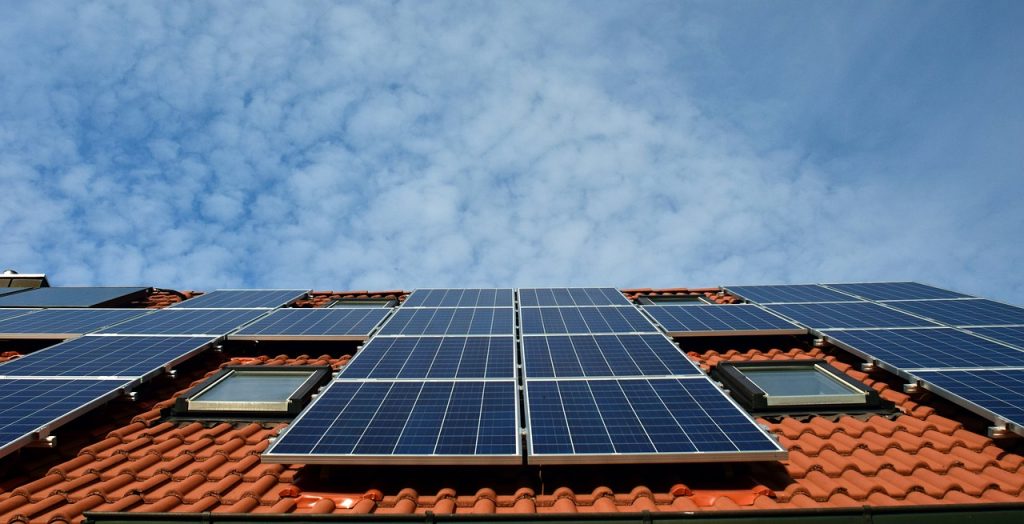
Rainfall
Rainfall can play both a positive and negative role in maintaining solar panel efficiency. On one hand, rain can help clean the surface of the panels, removing dirt and debris. However, heavy rainfall can also lead to the accumulation of water and cause potential damage if the panels are not properly sealed or installed. Regular inspections after heavy rainfall can help detect any water-related issues and ensure that your solar panels are operating optimally.
Dust and Debris
Dust and debris can accumulate on the surface of solar panels over time, reducing their efficiency. This is especially true in areas with high levels of air pollution or construction activities. Regular cleaning, as mentioned earlier, can help remove this buildup and maintain the performance of your panels. Additionally, installing bird deterrents, such as netting or spikes, can help prevent birds from nesting on or around the panels and minimize the amount of droppings and debris.
Pollution and Industrial Factors
If you live in an area with high pollution or industrial activity, it is important to consider the potential impact on your solar panels. Pollution and industrial factors, such as chemical emissions or fine particulate matter, can settle on the panel’s surface and reduce their efficiency. Regular cleaning and inspections are crucial to detect and address any issues caused by pollution or industrial factors. Additionally, considering installing an air filtration system or positioning the panels away from known sources of pollution can help minimize the impact.
Snow and Ice
Winter weather, particularly snow and ice, can pose challenges to the performance of solar panels. Snow accumulation on the panels can significantly reduce their ability to generate electricity. It is important to clear snow from the panels promptly to ensure optimal performance. Additionally, ice can cause damage to the panels if it expands or contracts. Regular inspections after winter storms are essential to identify any potential issues caused by snow and ice and take necessary actions to prevent damage.
Pests and Bird Droppings
Common Pest Issues
Pests, such as squirrels, rats, or insects, can pose a threat to the integrity and performance of solar panels. These critters may chew on wires, nest under the panels, or cause other damage. Regular visual inspections can help identify signs of pest activity, such as droppings, nesting materials, or chewed wires. It is important to address pest issues promptly to prevent further damage or electrical hazards.
Deterring Pests
To deter pests from interfering with your solar panels, there are several preventive measures you can take. Installing mesh barriers or specialized pest control devices can help prevent pests from accessing the underside of the panels. Additionally, keeping the surrounding area free from debris, such as fallen fruits or nests, can help reduce the attractiveness of your solar panel system to pests. If you are facing persistent pest issues, it may be necessary to consult with a professional pest control service for effective solutions.
Bird Dropping Prevention
Bird droppings can cause significant damage to solar panels if not addressed promptly. The acidic nature of bird droppings can corrode the protective coating on the panels and reduce their efficiency. Installing bird deterrents, such as netting, spikes, or visual repellents, can help prevent birds from perching or nesting on the panels. Additionally, regular cleaning and inspections can help remove any bird droppings before they cause long-term damage.
Cleaning Bird Droppings
If you do notice bird droppings on your solar panels, it is important to clean them promptly to prevent any damage. Start by spraying the affected area with water to loosen the droppings. Then, use a non-abrasive cloth or sponge to gently wipe away the droppings. Avoid using harsh chemicals or abrasive materials that could scratch or damage the panels. If the droppings are stubborn and difficult to remove, you may need to use a mild detergent or specialized solar panel cleaner specifically designed for removing tough stains.
Inverter Maintenance
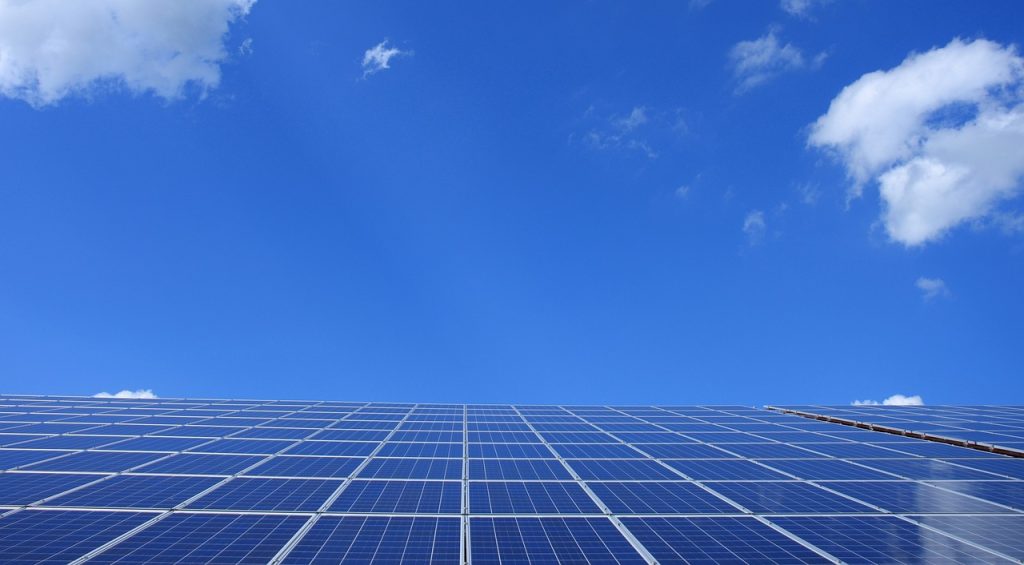
Monitoring Inverter Performance
The inverter is a crucial component of a solar panel system, as it converts the direct current (DC) electricity generated by the panels into usable alternating current (AC) electricity for your home. Monitoring the performance of your inverter is important to ensure optimal energy production. Most inverters have built-in monitoring features that allow you to track their efficiency and identify any potential issues. Regularly checking the inverter’s performance can help detect early signs of malfunction and address them promptly.
Cleaning and Ventilation
Proper cleaning and ventilation are essential for maintaining the performance of your inverter. Dust and debris can accumulate on the surface of the inverter over time, reducing its efficiency. Regularly cleaning the inverter with a soft cloth or brush can help remove any dirt buildup. Additionally, ensuring that the inverter is properly ventilated and not overheating is crucial. Ensure that the area around the inverter is clear and free from obstructions to promote adequate airflow and prevent overheating.
Regular Inspections
In addition to monitoring the performance and cleanliness of your inverter, regular inspections are necessary to identify any potential issues. Check for loose connections, frayed wires, or any signs of overheating during your inspections. If you notice any abnormalities or suspect a problem, it is best to contact a qualified electrician or the inverter manufacturer for further assistance.
Inverter Replacement
Over time, inverters can wear out or become outdated, requiring replacement. The lifespan of an inverter typically ranges from 10 to 15 years, depending on the quality and usage. If your inverter is nearing the end of its lifespan or if it is experiencing frequent malfunctions, it may be time to consider replacing it. Consult with a professional to determine the best replacement option that suits your specific needs.
Cable and Wiring
Checking Cable Connections
Regularly checking the cable connections of your solar panel system is crucial to ensure optimal performance. Loose or faulty connections can disrupt the flow of electricity and reduce the efficiency of your panels. During your inspections, examine the cables for any signs of wear, damage, or loose connections. Tighten any loose connections and replace any cables that appear frayed or damaged to maintain the integrity of your system.
Inspecting Wire Insulation
Proper insulation of the wiring in your solar panel system is essential for safety and efficiency. Insulating materials can degrade over time due to exposure to sunlight, extreme temperatures, or pests. Regularly inspect the wire insulation for any signs of cracking, melting, or damage. If you notice any issues, it is important to address them promptly by replacing the affected cables or seeking assistance from a professional.
Replacing Faulty Wiring
If you identify any faulty wiring during your inspections, it is crucial to replace them immediately. Faulty wiring can pose safety hazards and may impact the overall performance of your solar panel system. It is recommended to seek the help of a professional electrician who has experience working with solar panel systems to ensure proper installation and connection of the new wiring.
Proper Cable Management
Proper cable management is essential for maintaining the longevity and efficiency of your solar panel system. Keeping the cables organized, secure, and protected from physical damage can prevent issues such as tripping hazards or accidental damage during inspections or maintenance. Implementing cable management solutions, such as cable clips, ties, or conduit, can help ensure that the cables are neatly organized and protected.
Battery Maintenance
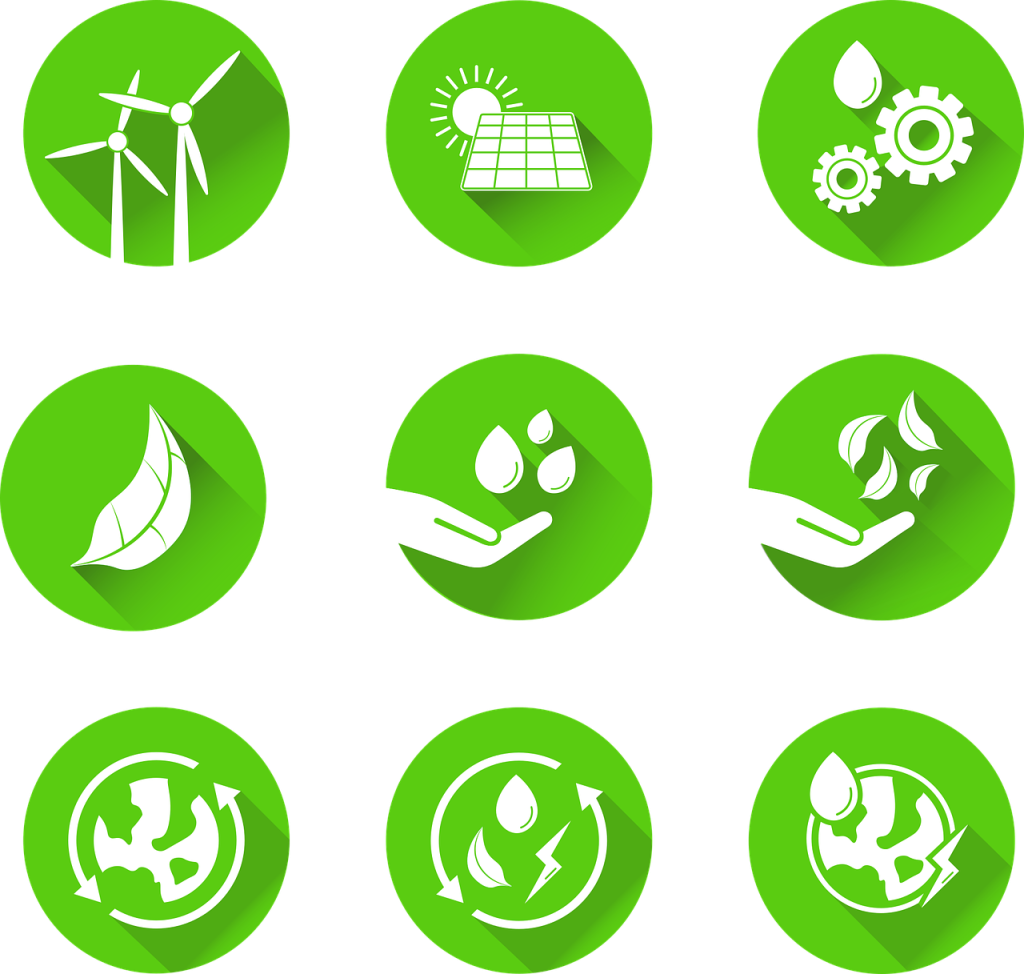
Battery Performance Monitoring
If you have a solar panel system with battery storage, monitoring the performance of the batteries is crucial. Regularly checking the battery performance indicators, such as voltage, charge level, or cycling, can help identify any potential issues or degradation. If you notice any significant changes in battery performance, it is recommended to consult with a professional to determine if battery replacement or maintenance is necessary.
Cleaning Terminals
Maintaining clean and properly connected battery terminals is important for the efficient operation of your solar panel system. Over time, corrosion or dirt buildup can affect the connection and performance of the batteries. Regularly inspect the battery terminals and clean them using a mixture of baking soda and water or a specialized battery terminal cleaner. Ensure that the terminals are securely tightened after cleaning to maintain a proper connection.
Battery Replacement
Like any other component, batteries have a limited lifespan and will eventually need to be replaced. The lifespan of solar panel batteries can vary depending on factors such as usage, storage conditions, and maintenance. If you notice a significant decrease in battery performance or if the batteries are reaching the end of their expected lifespan, it is recommended to consult with a professional to determine the best replacement option for your system.
Battery Storage
If you live in an area with extreme weather conditions or if you plan to be away for an extended period, proper battery storage is crucial. Ensure that the batteries are stored in a cool and dry location to prevent damage from high temperatures or excessive moisture. Disconnect the batteries from the solar panel system and store them in a well-ventilated area to ensure their longevity.
Monitoring Energy Production
Online Monitoring Systems
Online monitoring systems play a vital role in tracking the performance of your solar panel system. These systems allow you to view real-time data on energy production, consumption, and other important metrics. By accessing the online monitoring platform, you can identify any issues or abnormalities in the system’s performance and take appropriate actions. Regularly monitoring the energy production can help you optimize your system and identify any efficiency gaps.
Data Analysis
Analyzing the data collected from your solar panel system’s monitoring system provides valuable insights into the system’s performance trends, energy consumption patterns, and efficiency levels. By analyzing this data, you can identify any areas of improvement, optimize energy usage, and make informed decisions for system upgrades or maintenance. Consider seeking assistance from professionals or utilizing specialized software to derive meaningful insights from the collected data.
Performance Tracking
Tracking the performance of your solar panel system over time is important to determine its overall efficiency and effectiveness. By comparing the energy production data year over year, you can assess the system’s performance and identify any significant changes or declines. Regularly tracking the performance can help you plan for necessary maintenance or system upgrades to ensure maximum energy generation.
Identifying Efficiency Gaps
Monitoring the energy production and analyzing the data can help identify any efficiency gaps in your solar panel system. If you notice a significant decrease in energy generation or if the system is underperforming, it is important to investigate further to determine the cause. Factors such as shading, damaged panels, or improper system configuration could contribute to efficiency gaps. Identifying and addressing these gaps can help optimize your system’s performance and maximize energy production.
Severe Weather Management
Preparing for Storms
Severe weather conditions, such as storms or hurricanes, can pose significant risks to solar panel systems. It is essential to take necessary precautions to minimize potential damage or safety hazards. Before a severe weather event, ensure that your panels are securely mounted and any loose debris or objects are removed from the surrounding area. If the storm is particularly severe or if you live in an area prone to extreme weather, it may be beneficial to temporarily disconnect your solar panel system to prevent electrical hazards.
Extreme Heat and Temperature
Extreme heat and high temperatures can impact the performance of solar panels and other system components. Excessive heat can cause a decrease in energy generation efficiency and potentially damage the panels over time. To mitigate the impact of extreme heat, ensure that your solar panels are properly ventilated and have sufficient airflow. Additionally, selecting panels with higher temperature tolerance ratings can help maintain optimal performance in hot climates.
Hail and Wind Damage
Hail and strong winds are common natural hazards that can cause damage to solar panel systems. Selecting panels with a higher hail rating and ensuring proper installation are crucial for minimizing the risk of hail damage. Additionally, securing the panels with robust mounting systems and regularly inspecting them for any signs of loose bolts or connections can help prevent damage from strong winds. If your area is prone to severe weather events, it may be beneficial to install protective covers or shutters that can be used during extreme conditions.
Recovery and Repairs
In the unfortunate event that your solar panel system sustains damage from severe weather, it is important to prioritize safety and promptly assess the damage. Take appropriate measures to ensure personal safety and contact professionals for damage assessment and repairs. Depending on the extent of the damage, you may need to consult with your insurance provider for coverage and reimbursement. Proper recovery and repairs are essential to restore your solar panel system to optimal functionality and maintain its longevity.
General Safety Practices
Understanding Electrical Hazards
Solar panel systems involve working with electricity, and it is crucial to understand and respect the associated risks and hazards. Before attempting any maintenance or inspections, familiarize yourself with basic electrical safety practices. Ensure that the system is properly grounded, and always turn off the electrical supply before working on any components. If you are unsure or uncomfortable with electrical work, it is best to hire a qualified professional.
Safe Access to Panels
When performing any maintenance or inspections on your solar panels, it is essential to prioritize safe access. Ensure that you have a secure and stable platform, such as a ladder or scaffolding, to reach the panels. If possible, perform inspections from the ground using binoculars or a camera with a zoom lens. Avoid climbing onto the roof unless you have the necessary training and equipment to do so safely.
Working at Heights
Solar panel systems are often installed on rooftops, requiring work at heights. Working at heights poses additional risks and hazards, such as falls or slipping. Always take appropriate safety precautions, such as using fall protection equipment, securing ladders, and wearing appropriate footwear. If you are uncomfortable or inexperienced with working at heights, it is best to hire professionals who are trained and equipped to work safely in elevated positions.
Protective Gear
When working with solar panel systems, it is important to wear appropriate protective gear to ensure personal safety. This includes safety glasses or goggles to protect your eyes from debris or chemicals, gloves to protect your hands from sharp edges or electrical hazards, and appropriate clothing to prevent burns or injuries. Additionally, if you are working at heights, ensure that you have a harness, hard hat, and other necessary fall protection equipment.
Solar panels require minimal maintenance, but it is essential to prioritize regular inspections and cleaning to ensure optimal performance and longevity. By incorporating the recommended maintenance practices outlined in this article, you can enjoy the benefits of clean and efficient solar energy for years to come. Remember to always prioritize safety, and when in doubt, consult with professionals who have the expertise to address any issues or concerns with your solar panel system.

